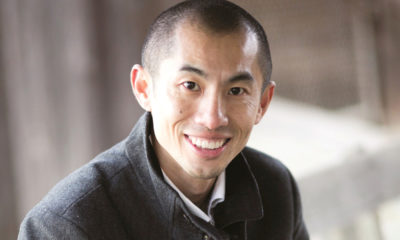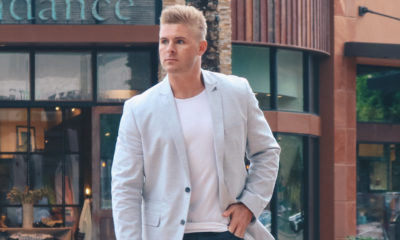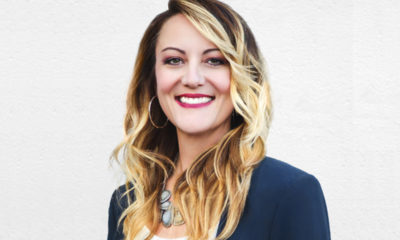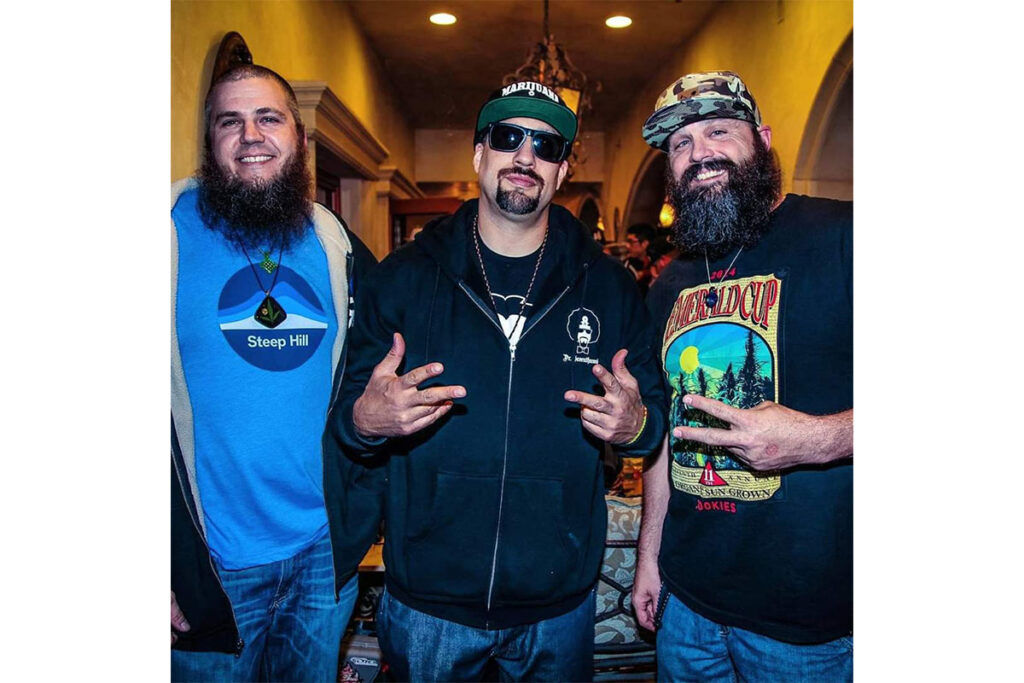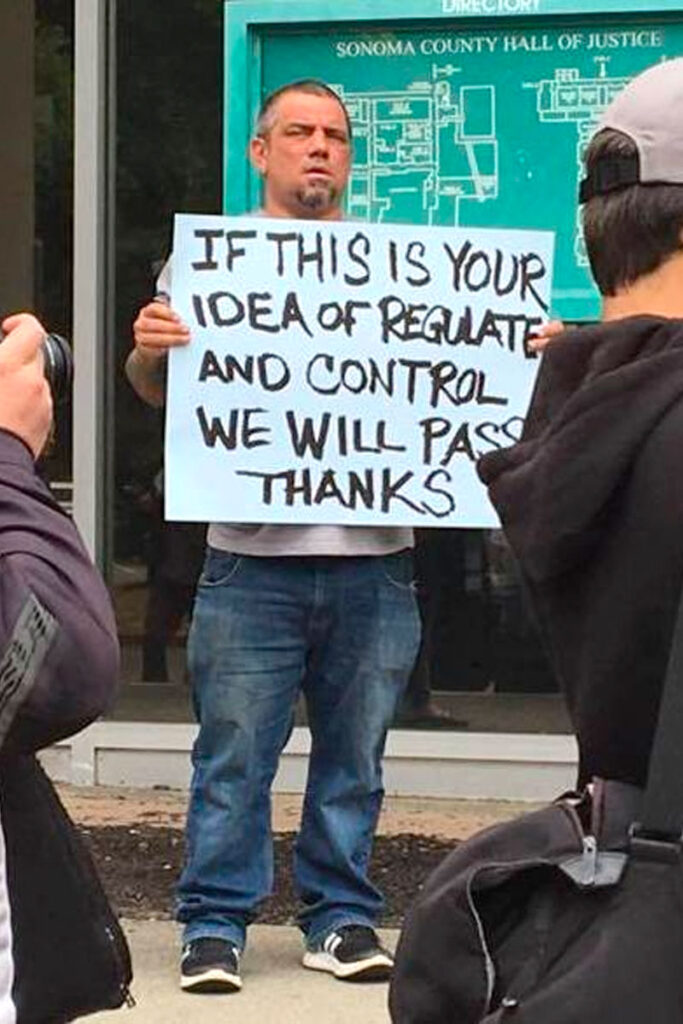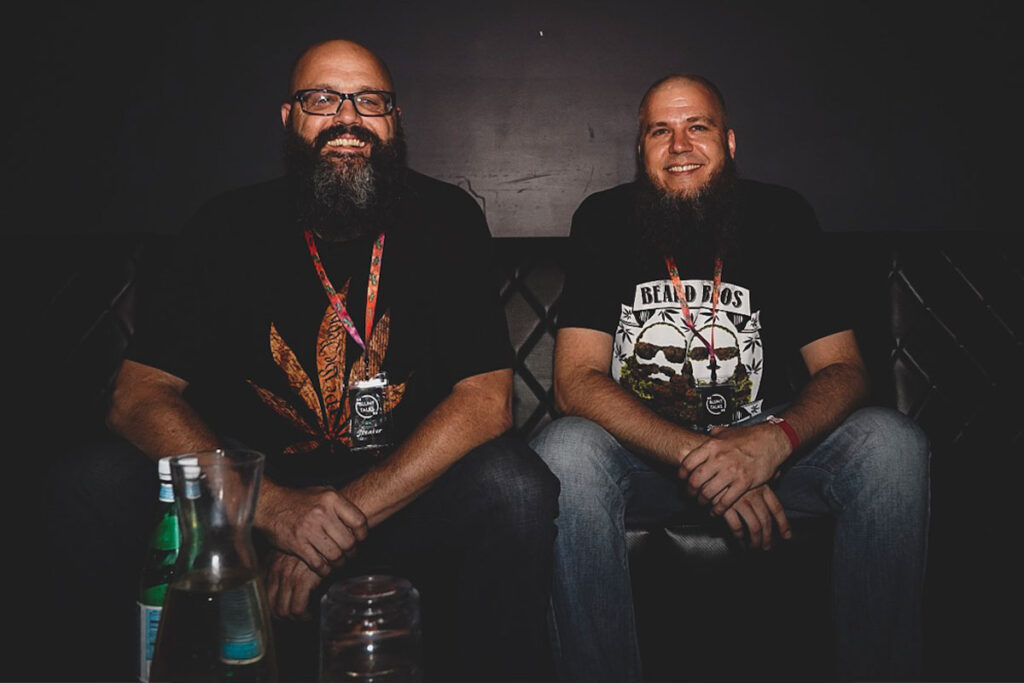Industry Innovators
Cameron Forni: How to Build a Billion-Dollar Cannabis Empire
Published
5 years agoon
By
Melissa Reid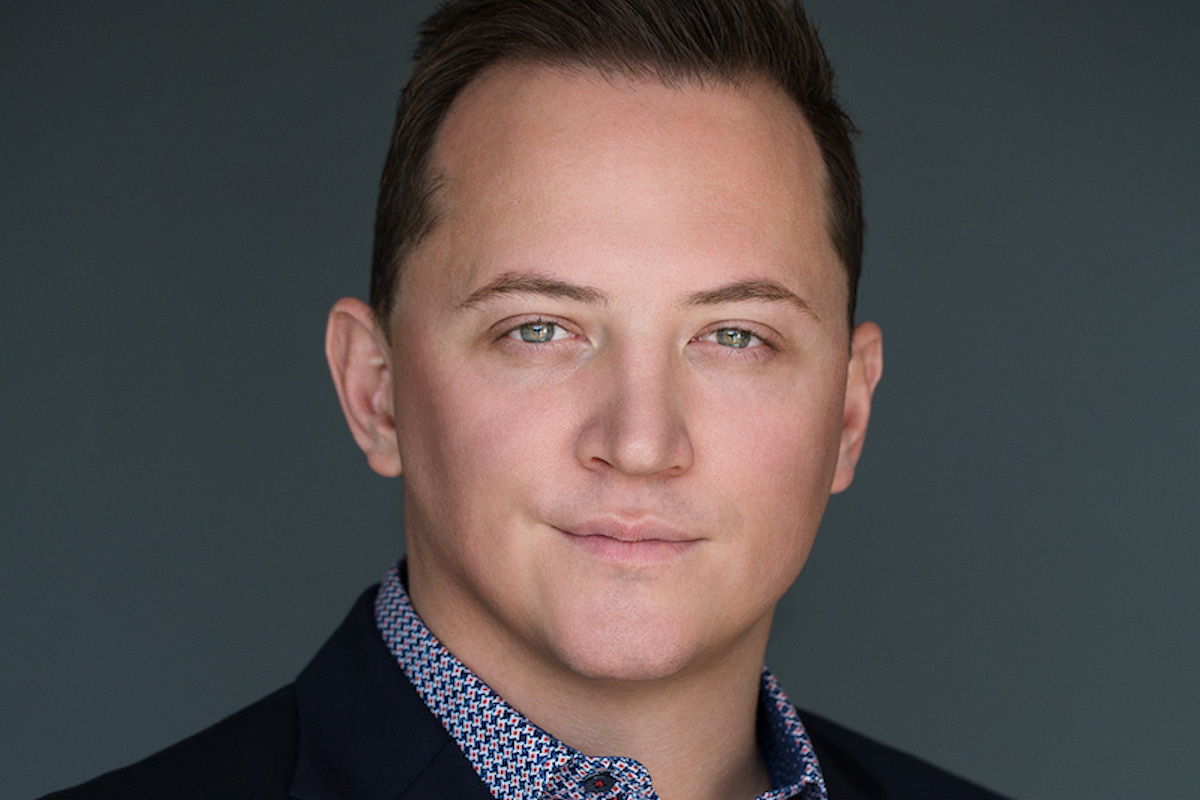
Cameron Forni knows a thing or two about building a billion dollar cannabis company. The CEO of Cura and founder of Select Oil has always been an innovative thinker. In 2015, he identified and developed the need for an organic cotton wick vape pen, providing a healthier consumption method. From there, he set his mission to be the leading provider of cannabis oil to both consumers and premium brands in legal markets, both in the U.S. and internationally.
We spoke to Forni about his entrepreneurial journey, Cura’s record-breaking success in the cannabis industry, and his predictions for the future of cannabis.
Cannabis Aficionado: Tell us a little bit about your journey through entrepreneurship and how you ended up in the cannabis world.
Cameron Forni: I’ve been an entrepreneur my entire life and have had many incredible mentors. Entrepreneurship was in my blood; I did everything from selling flowers on the side of the street in Milwaukie, Oregon as young as four-years-old, to managing a car detailing business in high school, to building an event company in college. I have always been interested in business and entrepreneurship.
Right out of college, my goal was to create jobs, not to take a job. I started my journey in entrepreneurship when I co-founded TextNoMore, an app designed to reward drivers avoiding texting while driving. From there, I co-founded TryEco LLC, which holds a patent on a starch-based, biodegradable super-absorbent polymer used primarily in agricultural applications. I always had a focus on building businesses that helped people live better lives and achieve more and that’s what led me to cannabis.
With both a medical card and a caregiver card on hand, I started looking at what the future of cannabis would be. I knew that combustion wouldn’t be a long-term option for most cannabis consumers, so I started focusing on safety and vaporization. I started taking apart every vaporizer pen in the market and learned that silica fiberglass was commonly found in most cartridges, so I built a new cartridge, innovated with organic cotton and unique absorption systems.
That’s when Select was born. It’s been quite the journey!
Over the last 18 months, Cura has seen record-breaking success in the industry. You became the first cannabis company to appear in INC. magazine’s annual top 50 companies in 2018. Now, your billion-dollar deal with Curaleaf Holdings is said to be the largest ever among American companies. How does it feel to be behind one of the industry’s golden unicorns?
Wow, what an incredibly cool question to hear. It’s often difficult for me to pause and reflect, so thank you! I’m thankful for the team who has helped build this incredible company with me every day. When you are relentlessly working and traveling (on pace for 300 flights this year alone) because you are so obsessed about something, it’s hard to turn it off. It’s been more than four years of hard work, but in cannabis years, they say that for every one year you multiply by seven because it’s moving so fast!
Sometimes it’s really hard to step back and look at what the work has become. People think that achieving milestones like the Inc. 500 placement or our billion-dollar acquisition must be all we think about, but it’s not always straight forward. We face federal regulatory approval, state licensing approval, audits and regulatory change in each state so often that it’s difficult to master balancing it all. That’s why you need an incredible team.
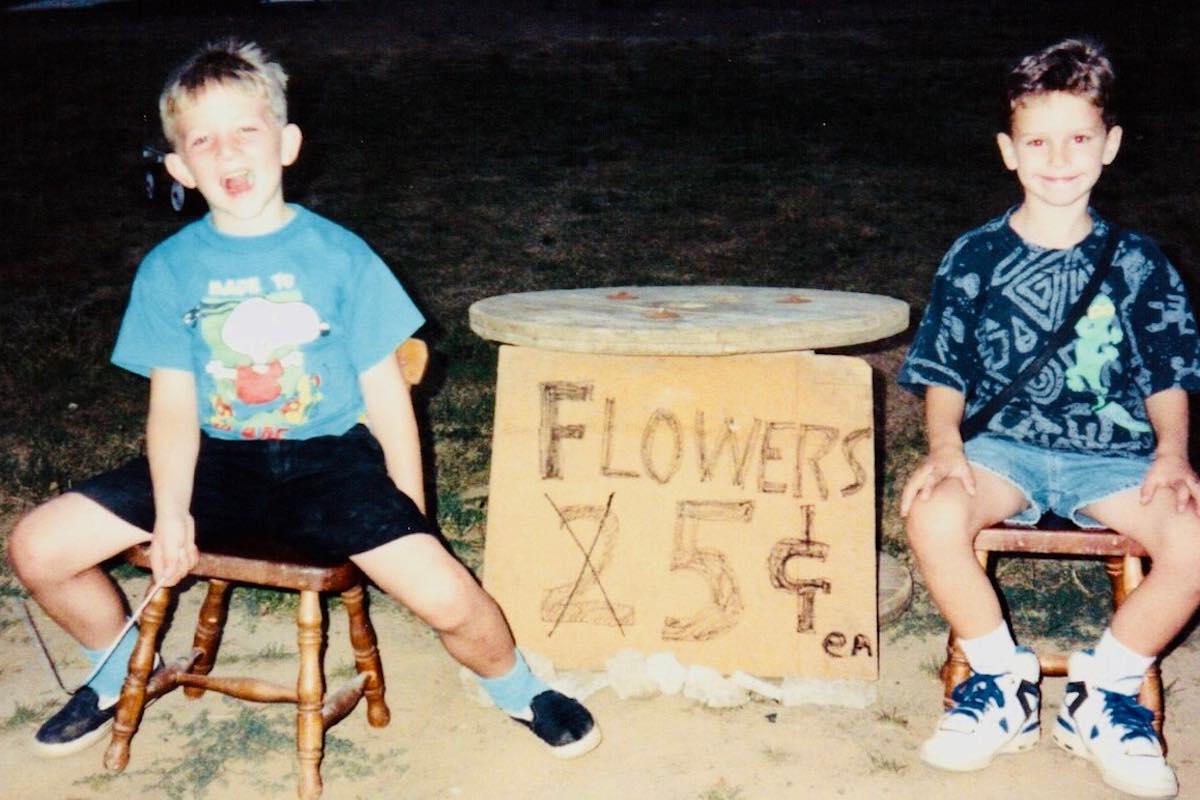
Cameron Forni (left) started his entrepreneurial path at a young age.
Cura is widely respected in the industry for innovative extraction techniques and its focus on setting high standards for quality products. How has it evolved from its beginnings into the industry leader it is today?
First of all, it’s always been about building the best team possible and taking care of people along the way.
Our evolution over a short period of time is due to our constant focus on innovation, setting best practices and our never-ending pursuit of better.
Senate Bill 582 will allow Oregon to import and export cannabis products across state lines — but only if the federal government changes its policies. What are your thoughts on this?
The main hurdle is the federal Controlled Substances Act which bans interstate shipments of cannabis. That would have to change. Otherwise, the states that attempt to implement this are subject to crackdown by the Federal Government. There is much work to be done here before this becomes a reality.
Which international markets do you think are really leading the charge right now?
The industry is in the first of a nine-inning ball game. With now 11 states with adult use policies, 33 states with medical cannabis laws and 62 percent of Americans in favor of legalizing cannabis (according to PEW), I expect the industry to have massive growth and significant consolidation.
Canada is the leader from the standpoint of the financial market because it came in early, established policies and amassed significant capital to deploy into international markets. However, the leaders in medical cannabis and cannabis research is still Israel who has been making significant investments into research and development in cannabis science.
Will vape pens replace flower? Why or why not?
There’s a nostalgia and ritual to consuming joints and using flower. With baby boomers and longtime cannabis users that will undoubtedly continue. However, U.S. consumer preferences always gear more towards convenience. The closer we can create the experience of vaporizing unique cannabis terpene and oil formulations, the closer we can get to replicating the experience to that of flower. Long term you will see vaporization pass combustion of flower and in the end, it’s safer.
What new challenges will the industry face going forward?
Banking, taxation, legislation and real estate have always been the major challenges facing cannabis operators. We are the most heavily taxed industries in the world. We are also one of the most heavily tracked — meaning track and traced — industries in the world. In every legal state we use RFID chips on each product case that goes to stores in order to track the product from seed to sale.
Last but not least, cannabis companies achieving profitability is becoming critical to survival in this space. With large gluts of products in states like Oregon, it makes it very hard to run a profitable business under incredibly high taxation.
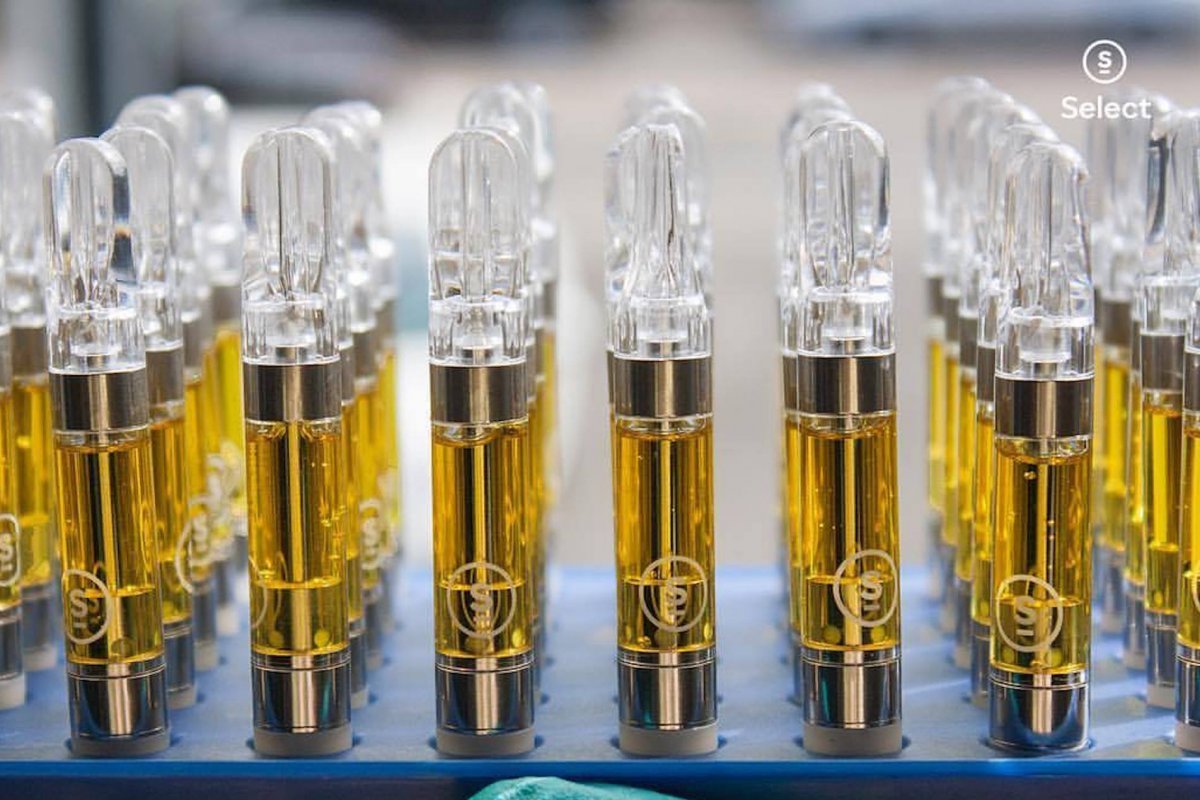
What trends are shaping cannabis in 2019?
I expect unique terpene profiles and oil formulations to become more popular. Additionally, innovative, discreet and more elevated devices will be the main drivers for 2019.
What demographic do you see having the most growth?
We’re seeing more and more young professionals 25-35 come on board to cannabis at a quick rate. Millennials are seeking cannabis options that suit their own personal needs and they’re becoming more willing to share their interest in cannabis publicly.
What are your one year, five year, and 10-year predictions for the cannabis industry?
1 year: More states will continue to come on board and legalize adult-use cannabis. With that, we’ll also see an uptick in normalization around the country.
5 year: Ideally, the STATES Act will pass, providing more people with access to cannabis, jobs and business opportunities around the country.
10 year: Cannabis is treated by society and regulated by the government like alcohol and will become mainstream.
What do you know now that you wish you knew when you started?
The biggest piece of advice I’d offer to new cannabis entrepreneurs would be to surround yourself with people who fill in your weaknesses early on.
It’s important to be agile and never get stuck to a plan. The plan is always changing because the regulatory environment is always changing. You can’t work in this industry without being agile and nimble with decision-making.
Finally, what are the three things people don’t know about being a cannabis entrepreneur?
- Time commitment: If you want to be successful in this business be prepared to give up your social life. I find myself traveling 48 weeks a year. Having a very understanding partner is critical as well!
- The regulatory environment WILL shift beneath your feet. Expect to order one million boxes of packaging and 2 weeks later that package is obsolete in one of the states you operate in because they need a new sticker
- Cost and funding: Traditional capital is not readily available to the cannabis entrepreneur, you need to make sure your business can survive and thrive. It’s very expensive to handle all the taxes and fees that accompany a cannabis business. For example, in California we face 44% supply chain tax, 12% excise tax, 11% sales tax, 5% gross revenue tax, 35% 280E tax, along with licensing fees and higher-than-normal rates for real estate… just because we’re a cannabis company.
Industry Innovators
Beard Bros Pharms: Taking Over the Cannabis World One Step at a Time
Published
3 years agoon
December 7, 2021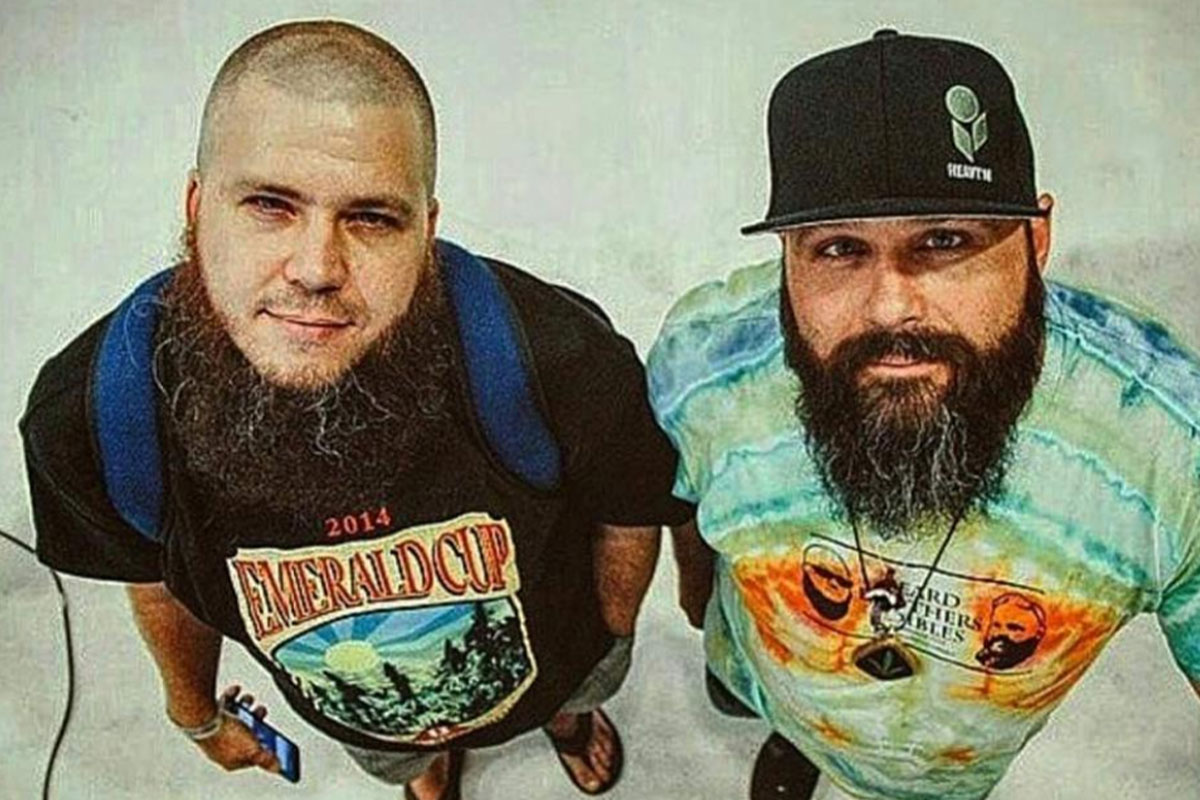
You could say that Bill and Jeff Levers aka Beard Bros Pharms have created their own cannabis standard. Not only are the brothers master cultivators, consulting for the likes of Kulture and other well-known brands, they are also fierce advocates for social reform, tireless cannabis prisoner campaigners, and savvy businessmen.
Cannabis Aficionado caught up with the Beard Bros to talk about their recent morphing into a full-blown media company, the social impact of legalization, the disruption of Prop 64, and the Small Farms Initiative they’ve been collaborating on with Tim Blake and the Emerald Cup.
CA: Tell me about your journey through entrepreneurship and how you found your way to cannabis?
Beard Bros Pharms: Both of us have been proponents of cannabis from a very young age. We never saw it the way the media portrayed it. Reefer Madness and prohibitionist talking points just never made much sense to either of us. We had always known it was medicinal, non-toxic, and non-lethal. We sometimes feel like we’ve been waiting for the “majority” of society to catch up.
Cultivation of the plant started for us in our teens and has carried through to this day. We have always had an entrepreneurial spirit and the cannabis industry, in general, is all about that. It’s always been a place where people could pursue their dreams and passions, even before it was legal and regulated like it is today. The people who have been in it for decades have had to adapt and improvise to keep up with the changing times as we have, as a community and industry, gone from the shadows to Main Street. To us, this adaptability and drive are some of the very definitions of being an entrepreneur.
What sets Beard Bros Pharms apart from other cultivators?
Initially, it was just our striving to produce the best and cleanest product possible for patients. It was about patients and consumers, not profits. This was no different than any other cultivators out there, but with the commercialization of this plant, it seems we are now among the few, not the many.
What has set us apart since then is our unique perspective and desire to see those less fortunate helped through cannabis and its culture. We’ve managed to stick to our roots and never compromise, even as that has made it harder to compete. We still have a lot of work to do, but we believe in this plant and the culture around it.
Something we realized early on was that this perspective wasn’t necessarily unique, but it wasn’t something people were talking about openly. What started as a way for us to build our product offerings has now morphed into a full-blown media company. A lot of media companies have moved into offering products, but as far as we know we are the only one to do it the other way around: move from products to media.
Tell me more about this product-to-press pivot?
Primarily it was the passing of Prop 64 here in California. We realized that Prop 64 made expanding our product offerings much more difficult than it had been previously, so like any good entrepreneur we pivoted.
We also realize that being known for good products in Southern California is certainly a good thing but being known worldwide as a leading source of cannabis news from within the industry is invaluable. We felt we had a good ear to the ground for what was happening in the cannabis world, and really wanted to give a voice to the voiceless by starting the conversations so many wanted to have but were afraid to get started.
So we dove headfirst into telling the story of the culture of cannabis and the people that brought it to fruition as what we see today. Over forty states with medical legislation and nearly twenty with adult-use legislation, each with their own unique challenges, provide us a lot of opportunities to spread our message and thoughts to the world.
Tell us about your product line?
Without getting into too much detail we have scaled our product line down currently. Prior to 2018, we had anywhere from sixty to eighty different products. Starting in 2018 with Prop 64’s over-regulation and over-taxation it has made it extremely difficult and risky to have a product line that is too expansive. So we have gone back to our roots as medical providers. We are currently carrying a high-THC full spectrum cannabis oil and a high-CBD full spectrum cannabis oil that is available throughout California. We also have a full host of low or no THC wellness-based products available nationwide.
We are also currently working on getting a new line of flower products to market under the Beard Bros name as well as under a new name that we aren’t quite ready to announce just yet.
Can you tell me more about the Small Farms Initiative that you’ve been collaborating on with the Emerald Cup?
We are honored to be working once again this year with the team over at the Emerald Cup as so many of our own ideals align with theirs. Among those is the need to support the small, craft cannabis farmers who were immediately and negatively impacted by the passage of Prop 64 here in Cali. These farmers were told that they would have a five-year head start, 2018-2023, before farms larger than one acre would be able to operate. That stipulation was smeared before the ink even dried on the new law and loopholes like license stacking has led to an influx of corporate cannabis operations that can afford to legally grow weed, they just don’t know how and don’t care to learn.
The legacy farmers from places like the infamous Emerald Triangle are quite literally at the root of cannabis culture, which we work every day to preserve and propagate. So, the organic relationship with the Emerald Cup is dear to our hearts at Beard Bros Pharms and we have been loudly promoting their Small Farms Initiative that they launched leading up to the Emerald Cup Harvest Ball in December. The Cup has invited all licensed farms who are under one acre and who use regenerative and responsible standards to apply for one of 27 free booths on the Marketplace floor at the Harvest Ball. These farms will also be promoted by the Cup at the event, along with other benefits that will help raise awareness of these legacy brands.
People look to us as honest purveyors of media and as, let’s just say, “above average” indoor growers from LA. This is another reason why we love the Emerald Cup. Their efforts in recent years, and ahead in 2022, to unify the California cannabis market are admirable and smart. The whole LA vs The Bay or NorCal vs SoCal memes are played out. Anyone in this game who is more worried about promoting their city or zip code instead of their brand and this culture will likely soon have plenty of time to do just that.
What do you see as the social impact of legalization?
That’s an interesting question. We see legalization as a double-edged sword. On one hand, people are not being prosecuted as highly as they were previously. On the other hand, the over-regulation, over-taxation, and the barriers to entry have left so many who have sacrificed so much out of the industry that they helped build. This is an industry built on advocacy and created through activism, and in many ways, it has lost its way.
Just like anything in life, it has its pros and cons. We would like to see the cons minimized as much as possible. We would like to see an industry that allows for the very heart of what we grew up understanding as to the American way: small businesses, craft producers, and the ability for anyone who wants to try to participate to have the ability to do so.
You are advocates of advocating for the freedom of cannabis prisoners. How can people reading this help get behind this movement?
Yes, we are. Let’s just call it like it is… no one should be in prison for weed. Period. At this point, we have been advocates for cannabis prisoners for nearly a decade. We supported it before that but got involved physically about a decade ago.
In our opinion, the best thing people can do is to continue to raise awareness that there are people who are spending tens of years (if not life sentences) for non-violent cannabis charges. It is certainly one of the most egregious errors in our current criminal justice system.
On a more local level find a group that advocates for cannabis prison reform and support them fully. Speak up at every opportunity. Make sure their stories are told. Make sure those still participating in the War on Drugs understand the impacts they are having on lives, families, and more.
What’s the most important thing that needs to be addressed when people are talking about legalization?
First and foremost the main thing to understand is that “legal” can mean different things. “Legal” in Florida is not the same thing in California or Colorado. The distinction isn’t just for consumers and patients either, it is also for businesses.
On the business side, it’s fairly straightforward. What are the barriers to entry? What’s the license structure? Some places, like Oklahoma, are as simple as filling out a form and paying $2500, whereas in others it’s an intense lottery process that can cost tens or hundreds of thousands of dollars just for the ability to try — and potentially fail. Other states fall on a pretty broad scale between these two extremes. Understanding how this impacts businesses, and in turn, consumers is paramount. At Beard Bros, we are against regulatory capture, forced vertical integration, and other protectionist rules that make participating in the market only available for well-funded corporate operations.
On the consumer and patient side the most important issue in our minds is home grow. To us, home growing of cannabis should be a fundamental right included in any legalization method. Home grow allows for those interested to take full control of their cannabis intake. It’s also the key to true entrepreneurship and equality. Home grow allows for experimentation, which leads to innovation, which is the backbone of any successful industry.
Time to give some props — who do you think deserves respect in the industry?
We’re always going to go back to being inspired by Mickey Martin, an activist and friend of ours that passed a few years ago. The word ‘mentor’ simply means “an experienced or trusted advisor”, and although Mickey certainly served that role for us when we arrived in California, he was so much more than that. A friend, a father, a husband, and without a doubt the most outspoken advocate for cannabis that we have ever met, Mickey was also as business-savvy as they come. We worked with him directly with his Compassion Edibles brand and saw firsthand how he would cut right through the BS that could bog down a good deal. But, in hindsight, our biggest takeaway from our time with Mickey was an appreciation for his razor-sharp truth-telling. When Mickey passed, a massive gap was left in grassroots cannabis journalism and we have been trying our best to honor his legacy and fill that gap ever since.
How do you think the cannabis industry can be better?
That’s a fairly loaded question. There are a ton of problems in our industry. Enough that it could probably be its own article. With that being said we will try to hit a few of the major pieces that we already touched on: Homegrow; lower barriers to entry; legal banking and insurance, and better and more thorough testing
What’s your favorite thing about your job?
Free weed! Ok, so that’s a bit of a joke, but also a very real fringe benefit.
On a more real note, the best part of our job are the messages of support and love from all of our followers, friends, clients, and more. We started cultivating to help people, and we continue to do what we do now for the people.
What do you wish you knew when you started out in cannabis?
Honestly? How hard but also rewarding it was going to be. Both of us have had an entrepreneurial streak for as long as we can remember, but nothing has been as simultaneously challenging and rewarding as the cannabis industry. If we were to go back in time and give ourselves then some advice from us now it would be simple: Focus on the plant and the people. You can’t and won’t ever be able to buy authenticity, but you sure as heck can build it.
What are the three qualities you need to be a successful entrepreneur?
Passion, adaptability, and grit.
Sometimes life in cannabis is hard, and the only thing that will get you through is a true passion for this plant and the community around it. Cannabis is fast-paced, and things change every day, so that’s where adaptability comes in. Grit to us is really a combination of the two, but with a slightly different spin. It’s the internal piece that ensures the first two are always top of mind.
Any advice for anyone that’s thinking about getting into cannabis?
Don’t do it unless you truly care. There are a ton of people here to make money, and it only goes one of two ways: They either sell out entirely, or they fail miserably. This isn’t an industry that many will get rich quick from, and it isn’t an industry where you can just become an overnight success. This is an industry built on the backs of advocates and activists. It’s an industry that has a culture that has been here decades longer than anyone had “weed” on their resume. If you’re not truly passionate about the plant and the people this industry will chew you up and spit you out. It all sort of goes back to the three qualities we listed above.
What’s next for Beard Bros Pharms?
So many things. On the product side of the house, we are going to continue to expand our current offerings throughout California with some exciting deals that we aren’t quite ready to announce yet. We are also working on a new flower brand that should turn some heads once it’s out in the open.
Additionally, we are also in the works of expanding our hemp-derived wellness products from coast to coast. On the media side, we are expanding our original content offerings, growing the team, and focusing heavily on partnerships and events where we are already partnered. Basically… we are setting ourselves up to take over the cannabis world, and doing it one step at a time.
Where can we follow you?
The best and most obvious place is Instagram. @beardbros_pharms is our main page, with a backup at @beardbrospharms just in case the IG police finally catch us. You can also find both of us on LinkedIn under our full names: Bill Levers and Jeff Levers. Signing up for our Friday Sesh Newsletter and checking out our upcoming news show on Social Club TV are also solid ways to keep up with all things Beard Bros Pharms.
Industry Innovators
Jason Washington: Creating a Global Cannabis Kulture
Published
3 years agoon
March 11, 2021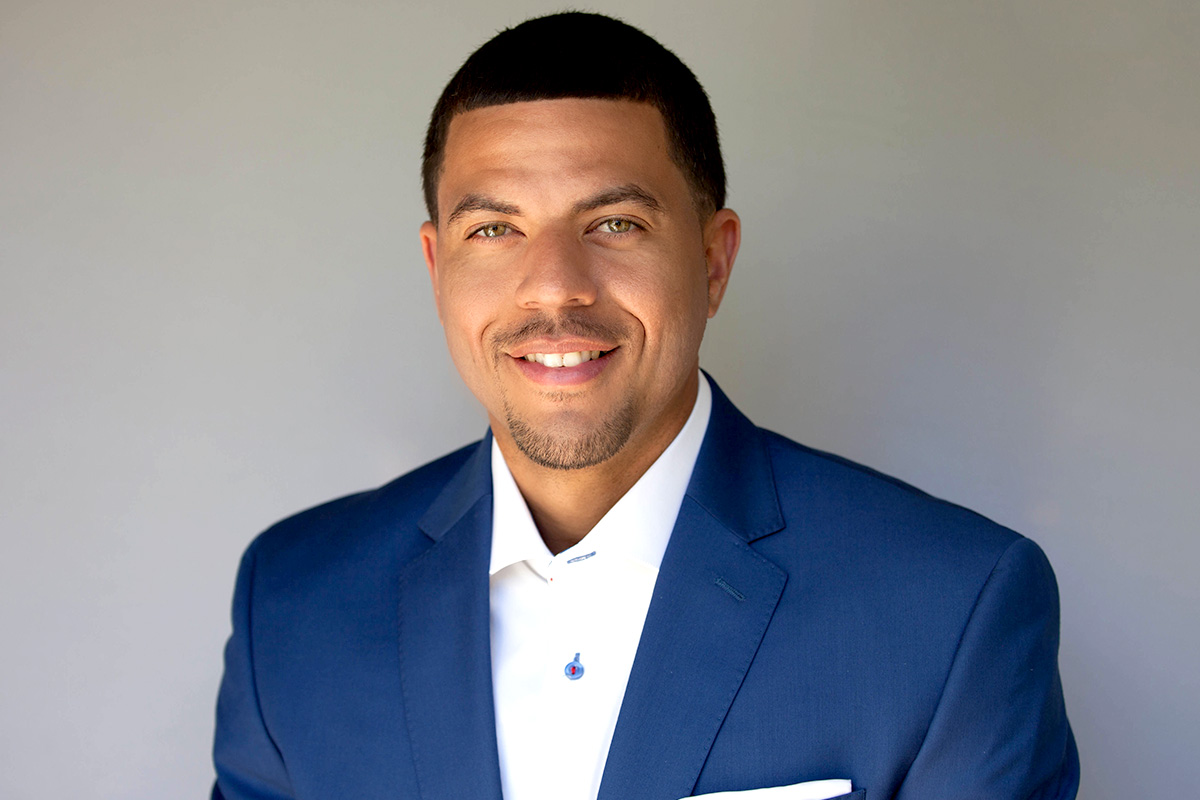
Jason Washington is a successful entrepreneur both in and out of the cannabis industry. He is also the second person in U.S. history to face a jury trial proceeding on a state-licensed medical marijuana case. His story is a powerful reminder that the most dangerous thing about the cannabis plant is the grey area that surrounds its legal status.
In 2011, Washington’s Big Sky Health dispensary was the largest legal operation in Montana. And despite medical marijuana being legal in the state since 2004, the Feds raided him. At trial, he was found guilty of conspiracy to manufacture and distribute cannabis and possession with intent to distribute. His judge deviated from the mandatory minimum sentence guidelines of 10 years, instead sentencing the former University of Montana Grizzly quarterback to two years in federal prison. In October 2014, his original sentence was reduced from 24 to 21 months, with the judge ordering Washington’s immediate release.
Washington returned to his home state of California where his natural aptitude for business saw him start several successful companies, including Ignite with Matthew Morgan and Dan Bilzerian.
Fueled by his desire to help those who had been wrongly incarcerated like himself, Washington went on to found Kulture, a full-service cannabis agency with a twist — you have to have a proven legacy with the plant to make the cut. The company has cultivation, extraction and manufacturing operations in five different states: Arizona, California, Oklahoma, Michigan and Missouri.
Cannabis Aficionado spoke to Washington about his loyalty to legacy operators, his advice to newcomers to the industry, and his plans for a global cannabis network.
CA: What sets Kulture apart from other cannabis agencies?
Jason Washington: One of the mandatory stipulations for being accepted or invited into the Kulture family is that you have to be a legacy operator. And a legacy operator suggests basically that you have a proven track record of 10 plus years in the cannabis space. You’re someone that was in this when it wasn’t just the latest “cool” business venture for Ivy League grads.
My directors of indoor cultivation are Bill and Jeff Levers aka the Beard Brothers, who are legacy operators. We’ve been running together for over two years — longer than Kulture has been established. Our philosophies and ideologies align. In fact, their commitment to helping veterans inspired the backpacks in our new clothing line; these are based on tactical gear as a salute to our veterans.
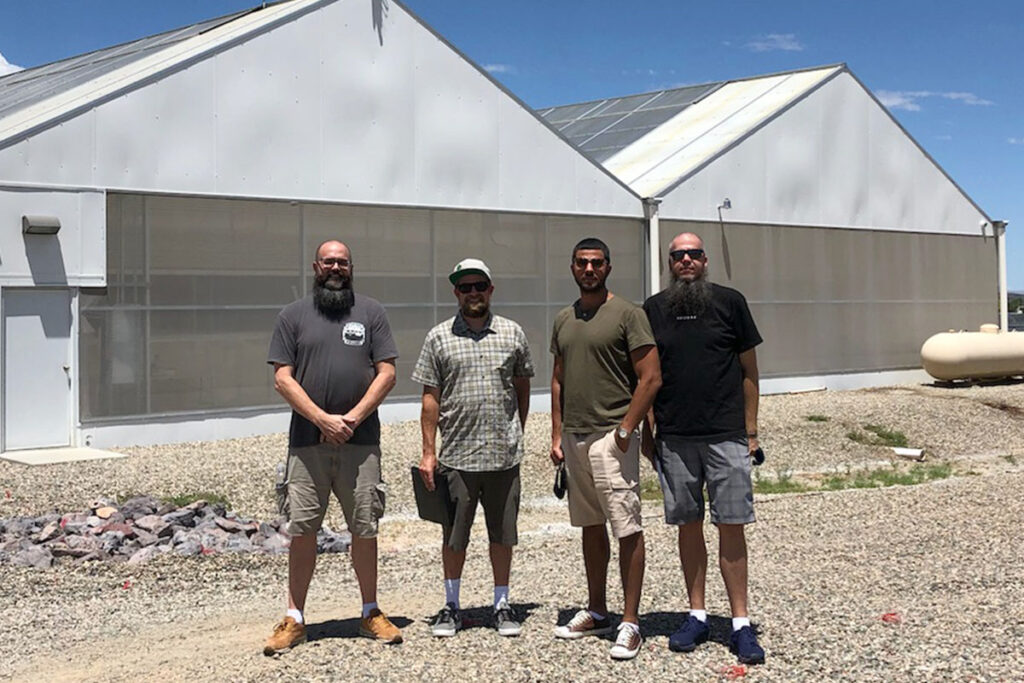
Why is this so important to you?
The pioneers of this industry have not been able to participate in the new legal market. A lot of people have made a lot of money off the backs of those who are now deemed criminals. Guys like me — those with weed felonies or federal felonies — aren’t looking for handouts. To be honest, I don’t know how to solve the problem. I just know that the problem exists.
Tell me more about your new clothing line and how it’s helping to change the stigma around cannabis?
Some very successful brands started with clothing in emerging markets just for brand awareness. For me, it’s about establishing normalcy like any other brand. In California, Prop 64 means we have been able to normalize the use of cannabis as a recreational drug. And as a very beneficial medical alternative to pharmaceuticals and other forms of pain management. Cannabis is becoming more and more acceptable, and it’s one more facet of people’s lives.
I’ve been in the cannabis game for a long time, so for me, the clothing line is new and exciting. Normalizing cannabis is the main reason I’ve launched it. The style is influenced by what my cultivators wear when they’re in the facilities. It ties into the Kulture lifestyle and appeals to a lot of different demographics.
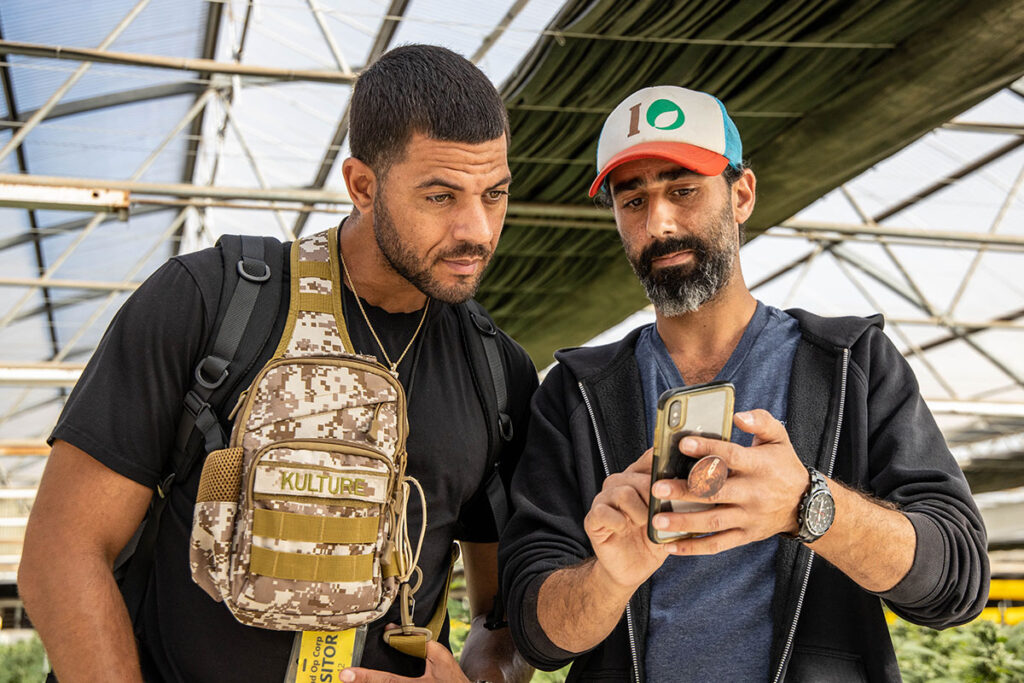
What are your expansion plans for Kulture?
Here’s the thing, cannabis doesn’t only help people in America. There’s a whole world of people that need this plant and our help and expertise. We have to focus on more than just America and more than our little micro-environments. I see Kulture as a 300-person global agency with offices in America, South America and somewhere in Europe or Africa. I see it as a combination that brings together the best cannabis talent in the world. Where the brightest minds come together under one roof to provide the best cannabis for everybody to enjoy.
What’s the most important thing that needs to be addressed when people are talking about cannabis legalization?
The conversation around inclusion needs to be further expanded upon. There’s still a lot of people that are in jail for this plant.
Another problem is people riding social equity but did not serve a day in jail or have never been prosecuted or raided. People get pushed to the front because they say, “I grew up in this neighborhood or I grew up in that neighborhood.” But those who were affected or who served time are not able to obtain a license. For example, I live in California, but my charge is federal, is in the state of Montana. So I can’t get an equity license in California because my charges did not originate in California. I’d have to go back to the state of Montana to participate or to be a license holder.
Look, I understand why states have said that in order for you to be an equity applicant the crime or the charge has to have been committed in that state or jurisdiction. I totally get that. But it’s keeping guys that went to federal prison for cannabis-related crimes shut out. They’re kept from participating from a licensing standpoint because their charge originated in a different jurisdiction than where they reside. Most federal indictments are brought in different jurisdictions than your home state.
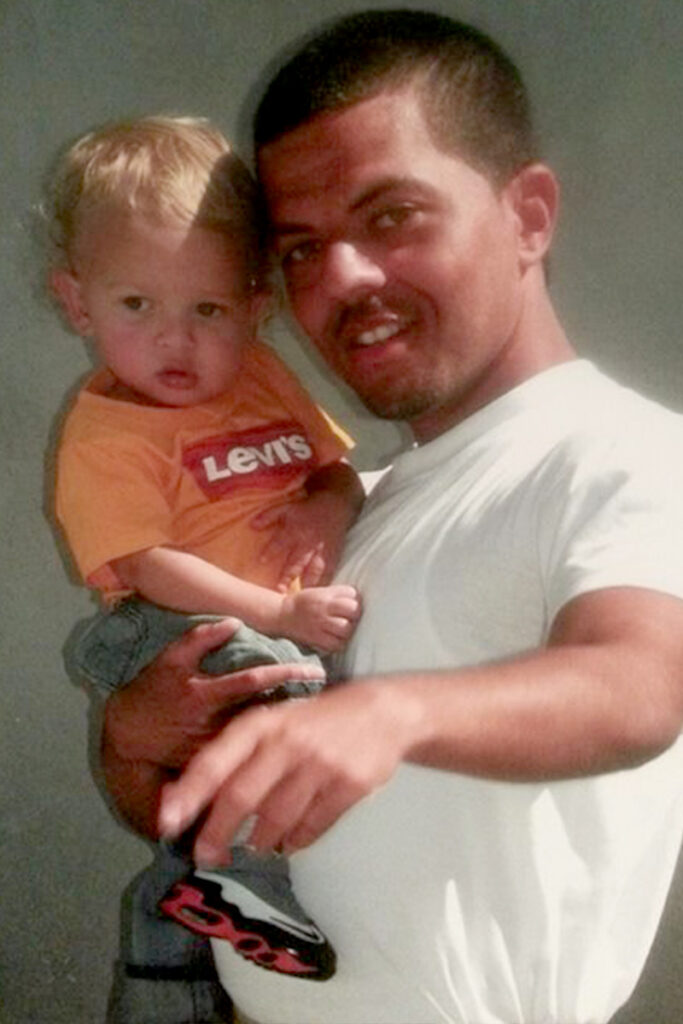
How do you think the cannabis industry can be better?
The biggest thing is if all these new executives and people coming into the space entered with more knowledge. They can’t get the experience, I get it. But at least the knowledge and understanding of what so many people have sacrificed for so long and went through. Understand the culture. Don’t completely strip cannabis of everything it’s been for so long and turn it into spreadsheets and mass production. Because that’s not what it is.
I get bringing a more professional business environment to the space; more legitimacy, more scientific data and more research-based products to market. But at the same time, don’t forget those who have given you this opportunity. Don’t forget how you got here and the sacrifice that was made to allow you to participate in this industry.
What do you wish you knew when you first started out in cannabis?
The power of the federal government and what substitute asset forfeiture meant. Haha.
What are the three qualities you need to be a successful cannabis entrepreneur?
I think perseverance is one of the biggest. I’ve been in it for 12 years and I’ve seen people come and go who don’t have the character and the stamina to fight through all that you have to fight through — whether it’s local municipalities, competition, or failed crops. You’ve got to be an innovator. You’ve got to be someone who is a survivor and a fighter.
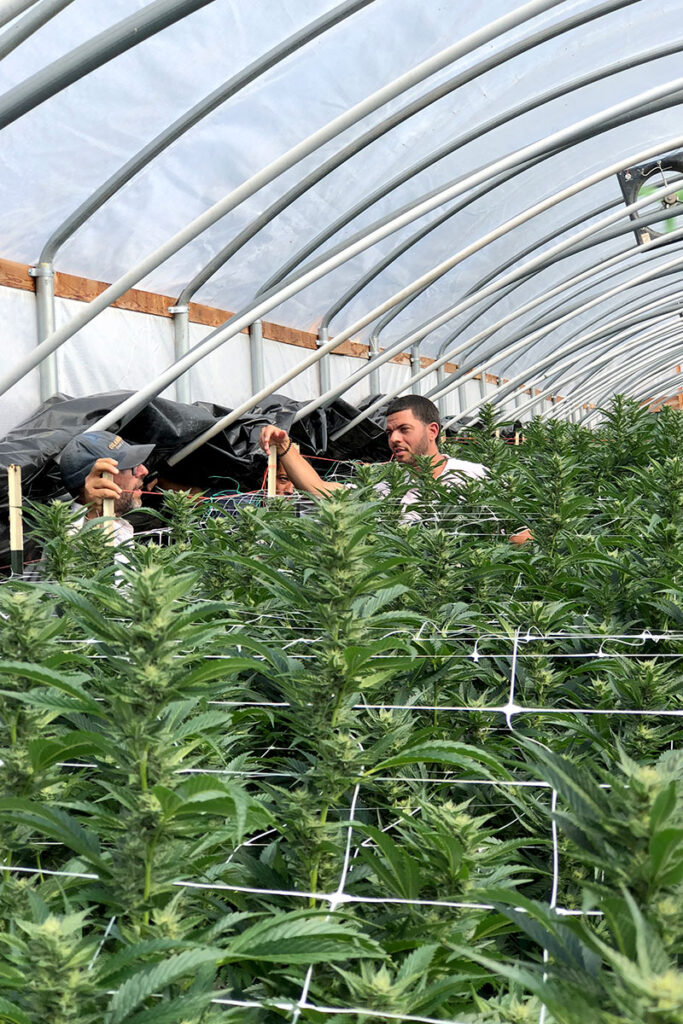
Do you have a career highlight?
There’s one thing that really sticks out to me to this day and it was when we opened the first Montana dispensary. I’ll be honest, I wasn’t 100% sold on the medical benefits of cannabis at first until one particular firsthand account from a mother. I was her son’s caregiver; her son was 13 or 14 years old and was epileptic. She came in one day and broke down crying because she didn’t have to go to the streets for cannabis anymore. She said, “You have no idea how much I admire and respect your courage and how much you helped my son. You guys being here and taking care of us has been like God answering my prayers.” It was very heavy and very emotional.
Hearing those kinds of stories and testimonials gave me the strength to stand up for what I was doing and believed in at the time. It still does to this day.
Believe it or not, I don’t look at federal prison as the worst thing that ever happened to me. It gave me the opportunity to sit back, reflect and learn from the choices and decisions that I’ve made. Maybe mistakes, maybe not mistakes.
Any advice for anyone that’s thinking of getting into cannabis?
If you’re thinking about getting into it now, you need to position yourself and prepare yourself for the long haul. You’re only warming up after five years in the space. This is a daily education. Cannabis is unique in a sense, it’s not like any other businesses. You can apply past experiences from other businesses ventures. But the hands-on education that you get on a day to day basis is like no other.
Industry Innovators
Casey Georgeson: Setting a Higher Standard for Clean, Green Beauty
Published
3 years agoon
February 26, 2021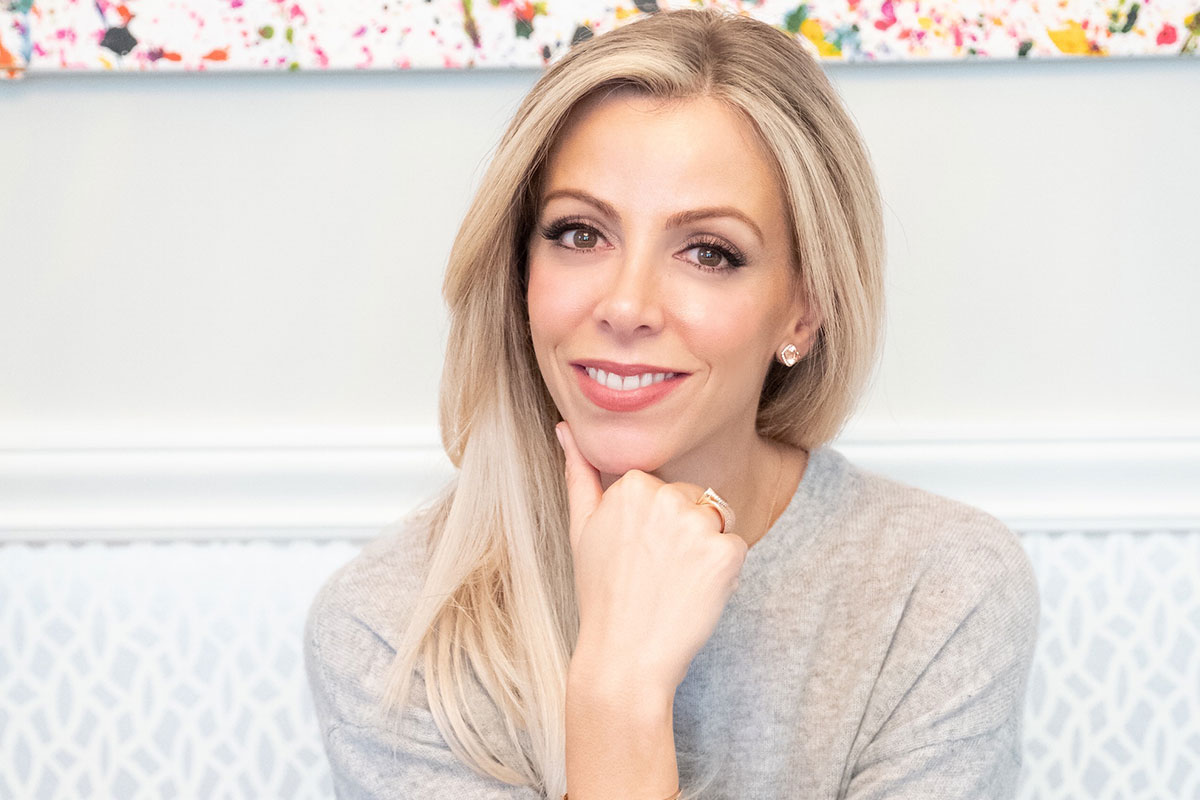
Casey Georgeson is the CEO and Founder of Saint Jane, a luxurious, 100% clean CBD beauty collection that has taken the CBD beauty category by storm since its launch in January 2019.
You could say entrepreneurialism is in her DNA. Coming from the Ernest and Julio Gallo wine family dynasty, Georgeson has spent her career developing beauty brands for Sephora, including Marc Jacobs, Disney for Sephora as well as the hugely successful wine brand, Cupcake Vineyards.
Georgeson is passionate about the powerful benefits of CBD and whole plant science. I spoke to her about her journey to becoming a cannabis entrepreneur, the importance of transparency and the story behind Saint Jane.
CA: Tell me about your journey through entrepreneurship and how you found your way to cannabis.
Casey Georgeson: My family has a history of entrepreneurship. My great-grandmother was a mail-order bride from Italy (yes that was a real thing!) who came over in the 1900s. She and my great-grandfather grew grapes in the San Joaquin Valley with their seven children. At the end of The Prohibition, still in the Great Depression, she saw an opportunity to use their vineyards for winemaking. She took out a $10,000 loan, using the farm as collateral. She gave $5,000 to her sons, the Franzia brothers, to start a winery; and $5,000 to her son-in-law, Ernest Gallo, to start a winery with his brother, Julio.
Essentially, a 4’10” mail-order bride started two of the largest wine companies out there. That story always resonated with me and even though I never had the chance to meet her — I’ve always admired the confidence it must have taken to do that as a woman in the 1930s. My uncle was also an entrepreneur and I learned a great deal from him throughout the years, watching him create a business.
I started my career as a producer for CNN and got into the wine industry as a brand creator where I developed a brand called Cupcake Vineyards. I went to business school at Stanford and interned at Sephora. It was there that I had this extraordinary training in the beauty industry and in product development and formulations. Once I graduated, I worked at Kendo, Sephora’s brand incubator. My role was to sit as the liaison between the brands we partnered with — Marc Jacobs, Elizabeth and James, Disney, Hello Kitty, Kat Von D— and articulate their vision in the world of beauty and that would ultimately lead to the building of their brands.
I had been creating brands for many years and thought I want to create my own brand at some point. It might be beauty. It might be wine. I just knew I wanted to do something on my own, but it had to be a really big idea.
When I discovered CBD in 2017, I first began really thinking about creating my own brand. It all started when I read a PopSugar article on CBD. The headline was, NATURE’S XANAX MEETS ADVIL. I was like, what is this natural miracle molecule? I immediately went to the dispensary and said to the budtender, “Show me everything you have that’s high CBD, low THC.” They showed me all these products that were really crunchy and hippie. Some formulated for the skin, some ingestible. This was in 2017.
Next to all these products that the budtender put out, was a list of all the things CBD was purported to do. You know that list, it’s very impressive and kind of shakes you to your core. Inflammation. Pain. Sleep. Anxiety. Gut health. Sleep. I thought, ‘If CBD does even one of these things, it is truly one of the most powerful skincare ingredients of our time.’ For topical use, most of the products dealt with pain management and were paired with MCT oil, because it was the easiest and it’s what was most commonly used for ingestibles. But, at the time, nobody was formulating with true skincare ingredients that would be at the level of something you would find at a luxury retailer.
That’s when I saw the opportunity. I would pair CBD with other really potent botanicals, that support the CBD mission for the skin, I knew it was an incredible idea. I went deep into learning about CBD and botanicals and Saint Jane was born.
What a journey! Can you tell me a little about the name Saint Jane?
Saint Jane has two meanings.
One, it’s the innocent side of Mary Jane, because CBD will not get you high.
Two, Saint Jane was an actual person in 1500s France. She was anointed into sainthood for healing people. Specifically, healing women, which society would otherwise never touch: the old, the very sick, unwed mothers. She dedicated her whole life to healing. Her story has been very inspiring to us because our products focus on nurturing, healing and we have a very authentic female empowerment story, as well. I have three daughters and the company is comprised of all women.
It’s truly a gift to have Saint Jane’s legacy as a foundation for the brand. Our approach is healing-centric and the way we’ve expressed that through the brand feels very authentic.
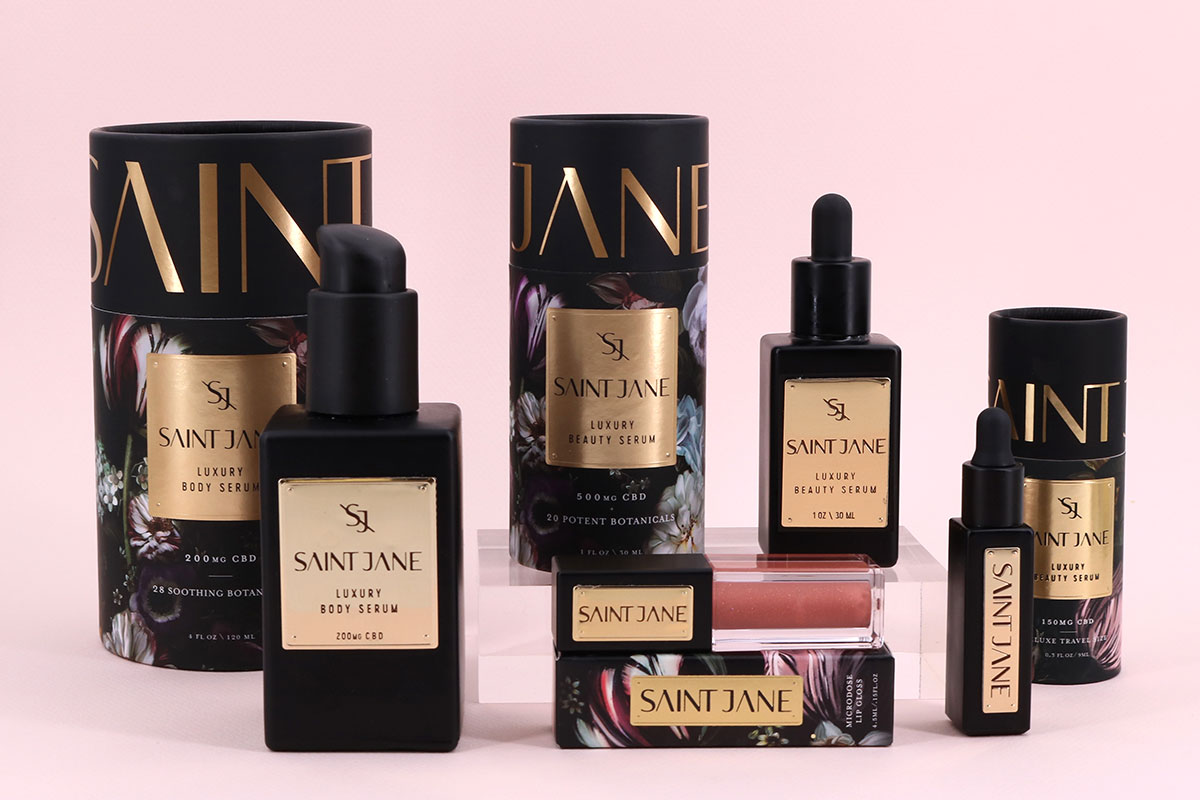
How amazing that you can pay homage to somebody who otherwise would’ve been forgotten in the mists of time, that’s beautiful.
The idea of reimagining this woman who was so important to society and culture for her to devotion to helping people, through this modern lens, is really inspiring. I had 16 years of Catholic school, yet I’m not religious. But this has inspired a renewed faith for me… in our own mission for women as Saint Jane.
What makes Saint Jane different from other CBD skincare products on the market?
I think the biggest difference is the way we’ve crafted the products. It’s about the whole plant story and other botanicals that we pair with CBD. It’s not just CBD for the sake of it. We thoughtfully match CBD with botanicals that support the cannabinoid’s mission of calming, soothing and nurturing the skin. The botanicals work in concert.
We’re also passionate about full-spectrum CBD — the whole plant extract — because we believe in the entourage effect. Rich endocannabinoid receptors in the skin benefit from those minor cannabinoids found in full-spectrum products.
We also believe in higher concentrations of CBD. When we started, there were a lot of debates around topicals and dosages. It felt so instinctual to me that a higher concentration would be most efficacious for the skin. My background in beauty taught me about performance and the end benefit. If your product works, you’re going to have people come back to you. I believe that our results-driven formulas really express that.
We’re also 100% clean. Our philosophy around clean is also non-negotiable. My second daughter was born very small, underweight. It’s called ‘Small for Gestational Age’ (SGA). We were terrified by that because my older daughter had been born at a normal weight. Juliet was shockingly tiny. We kept trying to figure out why and one of my doctors asked if I had been exposed to any chemicals while pregnant. At the time, I was developing fragrances, nail polishes. So, I flashback to those windowless offices where I was developing those products and I couldn’t tell anyone I was pregnant yet — it was my first trimester. In the end, we’ll never know; it was inconclusive if there was a correlation. But since then, clean has been non-negotiable and if I was going to create my own product line and collection, it needed to be as clean as it gets. My daughter is amazing and thriving today, but I never would want someone else to go through that. Clean is essential to our ethos.
Transparency and testing are the last ones. Trust is important to us. It took me a long time to get comfortable with the vendors and suppliers that I chose when I started Saint Jane. Back before the Farm Bill, it was really like the Wild West. I didn’t know who to trust as I was getting these packages of white powder delivered to my home. Or these full-spectrum extracts in syringes. I went through my own vetting process with vendors. My mission was to find the best of the best. I retested everything myself with third-party vendors and was shocked to see what I received was often different from what the paperwork stated.
That integrity of testing has stayed integral to the brand since we launched. We test four times during the supply chain to make sure everything is matching up and that we can stand behind everything were putting out there. Every batch is different and we have to stay true to that dedication to the integrity behind it.
Saint Jane has just been stocked by Sephora stores. Congratulations on such an amazing achievement. Can you tell me about that process?
Sephora has been an amazing partner, they’ve been incredibly insightful about our brand, they see our potential, so it’s been really rewarding to work with them. Being in Sephora stores is a huge validation. We’re still so small, still so indie and we are just getting started. Even though I had Sephora experience, I didn’t think they’d take a little brand like ours within our first year. It’s very full circle for me and we’re so grateful for their partnership.
The retailers we work with have been incredibly supportive across the board, too. As a CBD brand, we can’t operate like other normal indie skincare brands with Facebook, Instagram and Google advertising, so our retailers have been our storytellers. They’ve been our platform for brand awareness. We feel so grateful.
You recently announced Dr. June Chin has joined the team as your Chief Medical Advisor. Can you tell me about what that means for Saint Jane?
Dr. Chin is a recognized name in the cannabis space. She’s a longtime advocate of CBD and its healing potential — and not just in skincare. Because we pride ourselves on clean clinical-grade formulas, it made sense to partner with a doctor who shares our passion. She’s just been next level on understanding the power of the plant and has a background in plant-based medicine. CBD is one of the many plant-based ingredients that she’s passionate about. It’s been extraordinary to see the product through her eyes and getting it right as we don’t want to take a misstep on information. We want to make sure we’re architecting the narrative of CBD’s efficacy in the right way.
Who is Saint Jane aimed and why?
I would say we hope to reach people who want to transform their skin, with the powerful benefits of CBD. People are becoming more and more aware of CBD’s potential and we have an extensive range of customers who use it and are loyal to us. Luxury Beauty Serum is our hero product and it’s focused on skin condition and treatment. It has 20 botanicals that all focus on reducing irritation, balancing and detoxifying the skin. We have customers in their twenties through to their seventies who are all using our products and seeing results.
If you’re having a bad moment with your skin, it can impact on your confidence. It must be amazing to have made something that has an impact on someone’s life.
Hearing from customers has been the most rewarding thing since starting the brand. I talk about it a lot with my team. That’s why we’re doing it, to help people. And that’s the legacy of Saint Jane that we’re trying to honor.
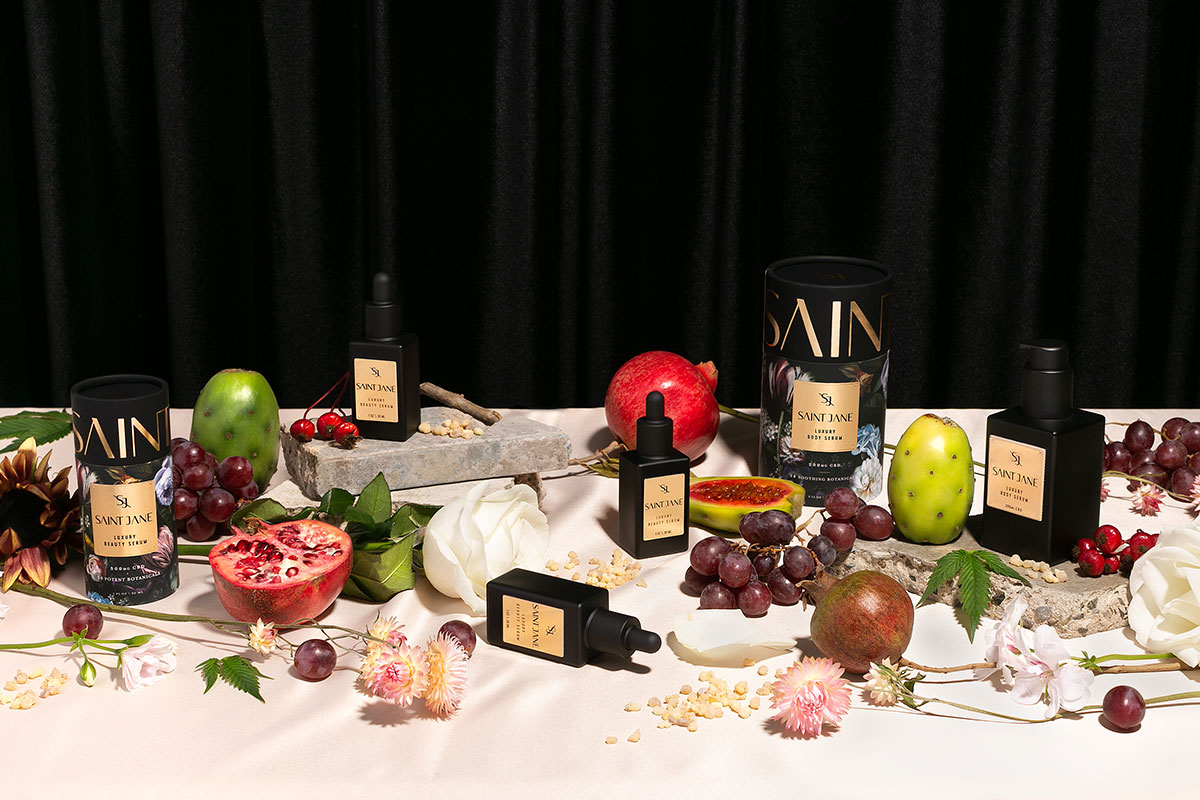
What’s next for Saint Jane?
We have so many things coming up on the horizon. I have more ideas than I’m allowed by my team to bring to market. It’s really about staying focused and disciplined on what we bring to market, to make sure that everything we introduce meets our standards.
How do you think the cannabis industry as a whole can be better?
For one, there is a lot of product out there that is not being produced and marketed responsibly. The products that work and are responsibly crafted are going to rise to the top and gain customer loyalty. I think as an industry we are architecting transparency and how brands communicate integrity. As an industry, we need to make sure we can have standards that ensure quality, education, transparency and as much consistency as we can with a highly botanical product. I want founders, I want companies, other brands to rise to the occasion, to honor the potential of CBD.
As the saying goes, “the rising tide will lift all ships” and that’s what I believe will happen.
What trend do you predict for the CBD and cannabis skincare market in the next five years?
My biggest hope is that CBD is regarded as a skincare ingredient like Vitamin C or Peptides. That’s number one. It deserves a place in that roster.
Number two, there are so many benefits to the minor cannabinoids found in the plant, like CBG and CBN. I think we’re just getting started in terms of understanding the benefits found in the entire plant. As a brand, we’re looking deeply into that. There are benefits that have not been fully explored yet. It’s exciting and in the next year, the next five, we’re going to learn a lot about the minor nutrients in the whole plant.
People like you are setting the standard of this next generation of cannabis products.
Thank you, we’re trying. And, we are willing to put in the work to accomplish this.
What do you wish you knew when you started out in cannabis entrepreneurship?
I think there’s entrepreneurship and then there’s cannabis entrepreneurship. I would say with entrepreneurship, you have to be so comfortable with ambiguity and uncertainty. Becoming a founder is committing to a lot, essentially a new life. You’ve got to be ready to ride the rollercoaster, get used to not sleeping. The cannabis side is its own endless roadblocks, with payment processing issues, advertising headwinds, which I didn’t expect. I wish I’d know some of the challenges we were going to be up against.
Any pearls of wisdom that you’d like to bestow to other women who want to enter the cannabis industry?
Do it. Do it! Do it! Do it! There’s a fabulous group of women as leaders in the cannabis industry. There’s a real sense of community and I think that is unique. It’s very unique in beauty, certainly – which as an industry is comprised of mostly men. There’s so much opportunity out there. It is like post-Prohibition. Think about how many wine brands, alcohol brands, spirits, beer, have launched since prohibition. This is a new time, a new era. I think CBD benefits women so deeply. There’s something about the molecule and women that’s so powerful. It’s a very unique combination. I would say yes…. if you see an opportunity, go for it!
Finally, what are three things it takes to be a cannabis entrepreneur?
Patience. Agility. Integrity. I would say these are the top three. It has to go deeper than just being a market opportunity or a buzzword. In cannabis, you have to be doing it for the right reasons in order to break through and to endure the saturation that’s coming.

